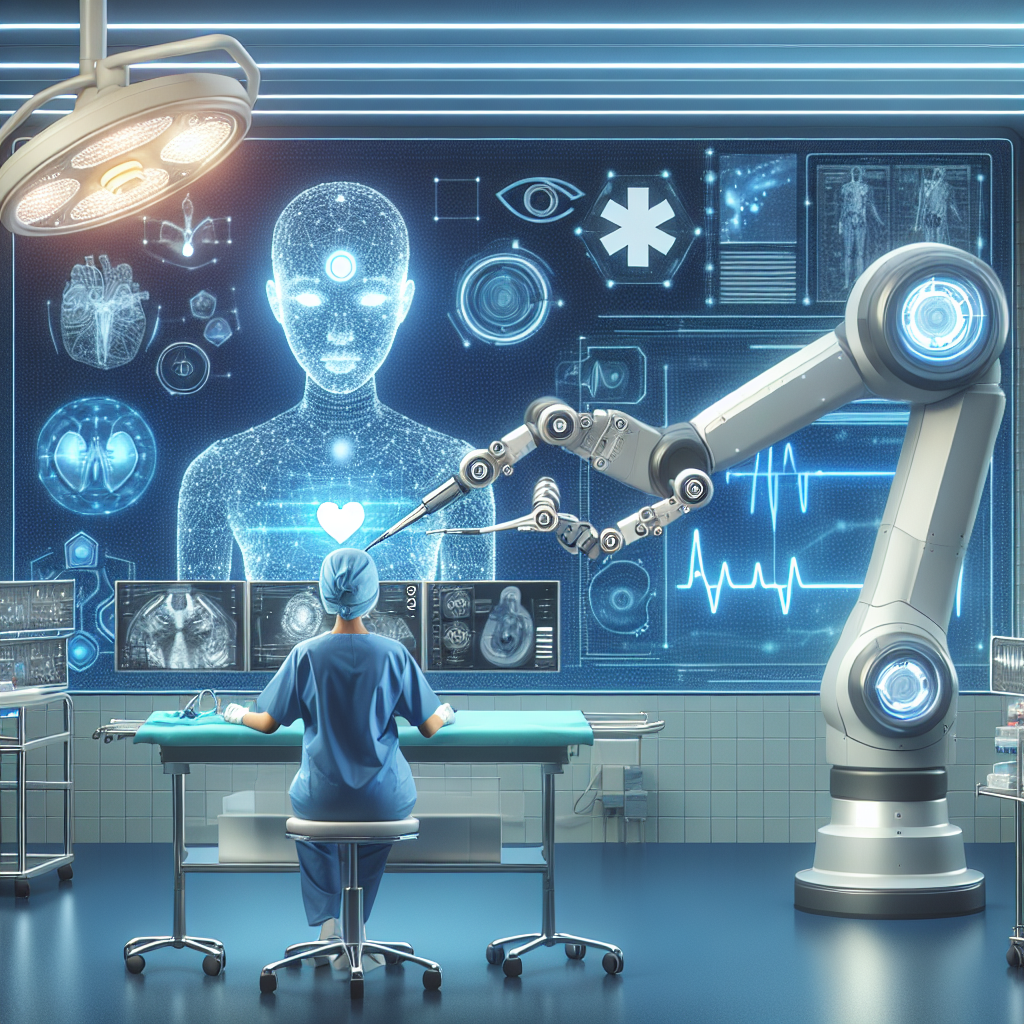Artificial Intelligence (AI) has been rapidly transforming the healthcare industry by revolutionizing the way patient data is analyzed and utilized for diagnosis and treatment. With the help of AI, healthcare providers are able to make more accurate and timely decisions, leading to improved patient outcomes and reduced healthcare costs. In this article, we will explore how AI is being used in healthcare to improve diagnosis and treatment through data analysis.
AI in Healthcare: Improving Diagnosis
One of the key areas where AI is making a significant impact in healthcare is in improving the accuracy of diagnosis. By analyzing vast amounts of patient data, AI algorithms are able to identify patterns and anomalies that may not be easily detectable by human doctors. This can lead to earlier detection of diseases and more targeted treatment plans.
For example, AI-powered imaging technology can analyze medical images such as X-rays, MRIs, and CT scans to detect abnormalities that may indicate the presence of diseases such as cancer. These AI algorithms are able to identify subtle changes in images that may be missed by human radiologists, leading to earlier and more accurate diagnosis.
AI is also being used to analyze electronic health records (EHRs) to identify patterns and trends in patient data that may indicate the presence of certain diseases. By analyzing data from thousands of patients, AI algorithms can identify risk factors and predict the likelihood of certain diseases developing in individual patients. This can help healthcare providers tailor treatment plans to each patient’s specific needs, leading to more personalized and effective care.
AI in Healthcare: Improving Treatment
In addition to improving diagnosis, AI is also being used to improve treatment options for patients. By analyzing patient data and medical research, AI algorithms can identify the most effective treatment options for individual patients based on their unique characteristics and medical history.
For example, AI-powered decision support systems can analyze data from clinical trials and medical research to identify the most effective treatments for specific diseases. This can help healthcare providers make more informed decisions about treatment options, leading to better outcomes for patients.
AI is also being used to develop personalized treatment plans for patients based on their genetic makeup and other factors. By analyzing genetic data and other patient information, AI algorithms can identify the most effective medications and treatment options for individual patients, leading to more targeted and effective care.
FAQs
Q: How is AI being used in healthcare to improve diagnosis and treatment?
A: AI is being used in healthcare to analyze patient data, such as medical images and electronic health records, to identify patterns and anomalies that may indicate the presence of certain diseases. By analyzing vast amounts of data, AI algorithms can make more accurate and timely diagnoses, leading to improved patient outcomes.
Q: How can AI help healthcare providers make more informed treatment decisions?
A: AI can help healthcare providers make more informed treatment decisions by analyzing data from clinical trials and medical research to identify the most effective treatment options for specific diseases. AI algorithms can also develop personalized treatment plans for patients based on their genetic makeup and other factors, leading to more targeted and effective care.
Q: What are some of the benefits of using AI in healthcare?
A: Some of the benefits of using AI in healthcare include improved diagnosis and treatment options, more personalized care for patients, reduced healthcare costs, and better patient outcomes. AI can help healthcare providers make more informed decisions about patient care, leading to more effective treatments and improved patient satisfaction.
In conclusion, AI is revolutionizing the healthcare industry by improving diagnosis and treatment through data analysis. By analyzing vast amounts of patient data, AI algorithms are able to identify patterns and anomalies that may not be easily detectable by human doctors, leading to earlier detection of diseases and more targeted treatment plans. With the help of AI, healthcare providers are able to make more accurate and timely decisions, leading to improved patient outcomes and reduced healthcare costs. As AI continues to advance, we can expect to see even more innovations in healthcare that will further improve patient care and outcomes.

